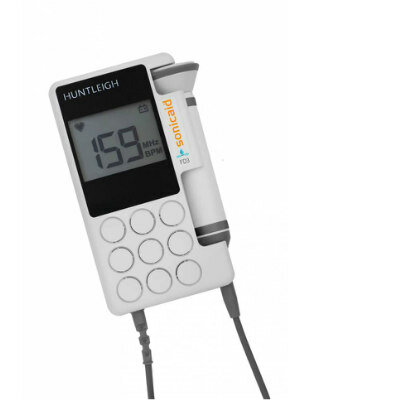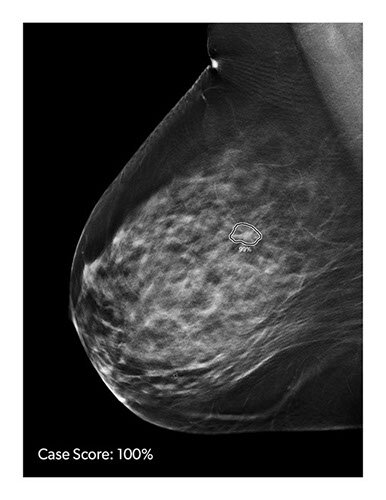AI-Enabled CT System Provides More Accurate and Reliable Imaging Results
|
By MedImaging International staff writers Posted on 01 Mar 2024 |

Computed Tomography (CT) plays a critical role in diagnosing cardiac diseases. Recent research advocates a "CT first" approach for patients with chest pain and undiagnosed coronary artery disease, thus enhancing patient care by circumventing more invasive procedures. However, the scarcity of high-quality CT systems and the lack of physicians skilled in interpreting cardiac CT exams often prevent this approach. Now, an innovative artificial intelligence (AI)-enabled CT system meets the advanced diagnostic imaging demands for cardiac care patient guidelines and also addresses other complex areas such as trauma care and interventional procedures.
Royal Philips (Amsterdam, Noord-Holland) has launched the CT 5300 system which features advanced AI technology for a wide spectrum of uses, including diagnosis, interventional procedures, and screening. This adaptable X-ray CT system boosts diagnostic confidence, streamlines workflow efficiency, and optimizes system uptime, consequently improving patient outcomes and departmental productivity. The system incorporates virtual tools for real-time collaboration and clinical/technical support, addressing issues like higher patient volumes, complex cases, staffing shortages, and budget restrictions. By providing the clinical expertise and features typically associated with high-end scanners in a more economical and versatile system, the CT 5300 makes cutting-edge medical technology more accessible.
A notable feature of the CT 5300 is the Nanopanel Precise, the industry’s first detector designed from scratch specifically for AI-based reconstruction. This innovative detector maximizes the potential of Philips' Precise Image reconstruction software, delivering high-quality images with significantly lower radiation doses. The software can reduce noise by up to 85% and enhance low-contrast detectability by 60%, all at an 80% reduced dose compared to traditional image reconstruction. Combined with Precise Cardiac motion compensation, the CT 5300 is particularly suited for high-quality, motion-free cardiac imaging, even in patients with rapid or irregular heartbeats. The system also includes Philips CT Collaboration Live, enabling remote assistance during exams where extra expertise or support is necessary. This feature not only enhances patient care by allowing more time for patient interaction but also improves the operator experience by boosting productivity and alleviating staff shortages. The CT 5300 system is designed with a focus on sustainability and long-term value, notably in its reduced energy consumption.
“We listened to radiologists about the issues they face every day and what they wanted out of a next-generation CT system. We then combined the latest imaging and AI technologies to meet their needs and created a system that delivers next-level diagnostic confidence, empowers workflows, and ensures lifetime value,” said Frans Venker, Business Leader of CT at Philips. “We’ve leveraged AI in virtually every aspect of the CT 5300, freeing both CT technicians and radiologists from tedious, time-consuming tasks so they can spend more time focused on their patients.”
Latest General/Advanced Imaging News
- New AI Method Captures Uncertainty in Medical Images
- CT Coronary Angiography Reduces Need for Invasive Tests to Diagnose Coronary Artery Disease
- Novel Blood Test Could Reduce Need for PET Imaging of Patients with Alzheimer’s
- CT-Based Deep Learning Algorithm Accurately Differentiates Benign From Malignant Vertebral Fractures
- Minimally Invasive Procedure Could Help Patients Avoid Thyroid Surgery
- Self-Driving Mobile C-Arm Reduces Imaging Time during Surgery
- AR Application Turns Medical Scans Into Holograms for Assistance in Surgical Planning
- Imaging Technology Provides Ground-Breaking New Approach for Diagnosing and Treating Bowel Cancer
- CT Coronary Calcium Scoring Predicts Heart Attacks and Strokes
- AI Model Detects 90% of Lymphatic Cancer Cases from PET and CT Images
- Breakthrough Technology Revolutionizes Breast Imaging
- State-Of-The-Art System Enhances Accuracy of Image-Guided Diagnostic and Interventional Procedures
- Catheter-Based Device with New Cardiovascular Imaging Approach Offers Unprecedented View of Dangerous Plaques
- AI Model Draws Maps to Accurately Identify Tumors and Diseases in Medical Images
- Routine Chest CT Exams Can Identify Patients at Risk for Cardiovascular Disease
- AR Preoperative Surgical Planning Software Makes Surgery Safer and More Efficient

Channels
Radiography
view channel
Novel Breast Imaging System Proves As Effective As Mammography
Breast cancer remains the most frequently diagnosed cancer among women. It is projected that one in eight women will be diagnosed with breast cancer during her lifetime, and one in 42 women who turn 50... Read more
AI Assistance Improves Breast-Cancer Screening by Reducing False Positives
Radiologists typically detect one case of cancer for every 200 mammograms reviewed. However, these evaluations often result in false positives, leading to unnecessary patient recalls for additional testing,... Read moreMRI
view channel
PET/MRI Improves Diagnostic Accuracy for Prostate Cancer Patients
The Prostate Imaging Reporting and Data System (PI-RADS) is a five-point scale to assess potential prostate cancer in MR images. PI-RADS category 3 which offers an unclear suggestion of clinically significant... Read more
Next Generation MR-Guided Focused Ultrasound Ushers In Future of Incisionless Neurosurgery
Essential tremor, often called familial, idiopathic, or benign tremor, leads to uncontrollable shaking that significantly affects a person’s life. When traditional medications do not alleviate symptoms,... Read more
Two-Part MRI Scan Detects Prostate Cancer More Quickly without Compromising Diagnostic Quality
Prostate cancer ranks as the most prevalent cancer among men. Over the last decade, the introduction of MRI scans has significantly transformed the diagnosis process, marking the most substantial advancement... Read moreUltrasound
view channel
Deep Learning Advances Super-Resolution Ultrasound Imaging
Ultrasound localization microscopy (ULM) is an advanced imaging technique that offers high-resolution visualization of microvascular structures. It employs microbubbles, FDA-approved contrast agents, injected... Read more
Novel Ultrasound-Launched Targeted Nanoparticle Eliminates Biofilm and Bacterial Infection
Biofilms, formed by bacteria aggregating into dense communities for protection against harsh environmental conditions, are a significant contributor to various infectious diseases. Biofilms frequently... Read moreNuclear Medicine
view channel
New SPECT/CT Technique Could Change Imaging Practices and Increase Patient Access
The development of lead-212 (212Pb)-PSMA–based targeted alpha therapy (TAT) is garnering significant interest in treating patients with metastatic castration-resistant prostate cancer. The imaging of 212Pb,... Read moreNew Radiotheranostic System Detects and Treats Ovarian Cancer Noninvasively
Ovarian cancer is the most lethal gynecological cancer, with less than a 30% five-year survival rate for those diagnosed in late stages. Despite surgery and platinum-based chemotherapy being the standard... Read more
AI System Automatically and Reliably Detects Cardiac Amyloidosis Using Scintigraphy Imaging
Cardiac amyloidosis, a condition characterized by the buildup of abnormal protein deposits (amyloids) in the heart muscle, severely affects heart function and can lead to heart failure or death without... Read moreImaging IT
view channel
New Google Cloud Medical Imaging Suite Makes Imaging Healthcare Data More Accessible
Medical imaging is a critical tool used to diagnose patients, and there are billions of medical images scanned globally each year. Imaging data accounts for about 90% of all healthcare data1 and, until... Read more
Global AI in Medical Diagnostics Market to Be Driven by Demand for Image Recognition in Radiology
The global artificial intelligence (AI) in medical diagnostics market is expanding with early disease detection being one of its key applications and image recognition becoming a compelling consumer proposition... Read moreIndustry News
view channel
Bayer and Google Partner on New AI Product for Radiologists
Medical imaging data comprises around 90% of all healthcare data, and it is a highly complex and rich clinical data modality and serves as a vital tool for diagnosing patients. Each year, billions of medical... Read more





















